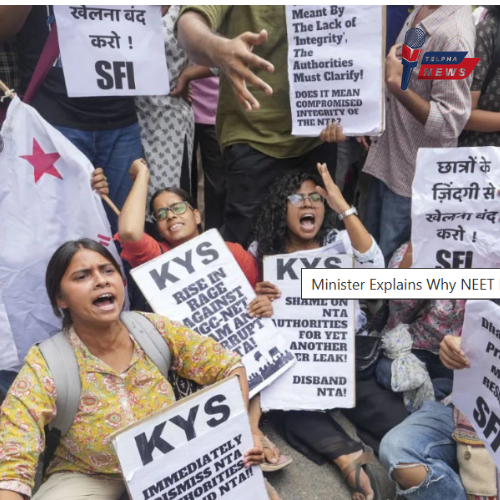In the world of competitive exams, integrity and fairness are paramount. However, recent revelations have shaken the educational community to its core. Ravi Atri, an alleged ‘fixer’, has come under the spotlight for his supposed involvement in the NEET exam paper leak scandal. This blog delves into the details of Atri’s alleged modus operandi and the implications of such breaches on the education system.

Who is Ravi Atri?
Ravi Atri, a name that has become synonymous with the recent NEET exam controversy, is alleged to be the mastermind behind a sophisticated network responsible for leaking exam papers. Known as a ‘fixer’ in the illicit world of exam fraud, Atri has allegedly orchestrated a series of leaks that have compromised the integrity of one of India’s most prestigious medical entrance exams.
The ‘Solver Gang’: A Network of Deceit
Atri’s alleged modus operandi is both complex and alarming. According to reports, he operated through a well-organized network known as the ‘solver gang’. This group is said to consist of individuals proficient in various subjects who would solve the exam papers in real-time.
How Did the ‘Solver Gang’ Operate?
- Access to Exam Papers: The first step in the alleged operation involved obtaining the exam papers before the official exam date. This could involve inside contacts or hacking into the systems of exam authorities.
- Solving the Papers: Once in possession of the exam papers, the solver gang would immediately get to work, solving the questions and preparing the answers.
- Uploading Solutions: The solved question papers would then be uploaded to social media platforms, making them accessible to a select group of students who had paid for these ‘services’.
- Distribution to Students: The answers were disseminated to the students through encrypted messaging services or other secure communication channels, ensuring that only those who had paid for the leak received the answers.
The Impact on NEET and the Education System
The NEET exam is a gateway for students aspiring to enter the medical profession in India. A breach of this magnitude undermines the efforts of genuine students who have worked hard to secure a place based on merit.
Consequences of the Leak
- Erosion of Trust: Such leaks erode trust in the examination system, leading to a loss of credibility for educational institutions and authorities.
- Unfair Advantage: Students who gain access to leaked papers have an unfair advantage over their peers, which can lead to undeserving candidates securing admission over more meritorious ones.
- Legal Repercussions: Individuals involved in the leak, including students who used the leaked papers, could face severe legal consequences, including criminal charges and disqualification from future exams.
- Psychological Impact: For genuine students, such incidents can be demoralizing and create a sense of injustice, affecting their mental health and academic performance.
The Need for Robust Security Measures
In light of these revelations, it is imperative for examination authorities to implement robust security measures to prevent such breaches in the future. Some recommended steps include:
- Enhanced Digital Security: Investing in advanced cybersecurity measures to protect exam data from hackers.
- Strict Monitoring: Implementing strict monitoring protocols during the examination process to detect and prevent any unauthorized activities.
- Awareness Campaigns: Educating students about the consequences of engaging in such unethical practices and encouraging a culture of integrity.
- Legal Framework: Strengthening the legal framework to ensure swift action against those involved in exam fraud.